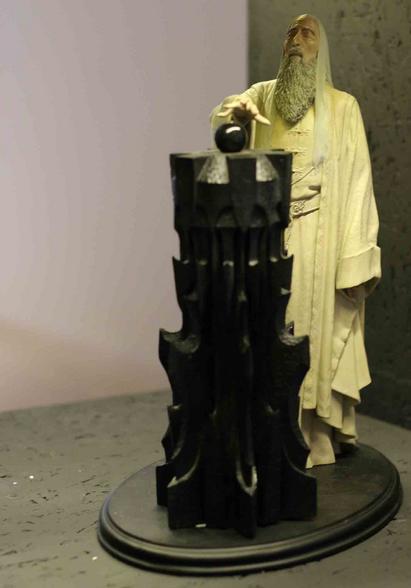
Evil
In Tolkien’s universe, the good fight against the forces of evil, and it is this struggle that is central to human existence. The cheery, peace-loving Hobbits are being forced to leave the Shire and become involved in this battle. Here, the Second World War might not be quite as distant as Tolkien himself says. Tolkien also felt that communism was a far greater danger to Europe than Nazism.
On the other hand, it is also a perpetual and existential conflict. Church Father Augustine (354–430) described it as a battle between two cities: the city of man and the city of God, the latter of which was destined to win. However, it was a battle that would only end when the kingdom of God became a reality. In the Middle Ages, the world was populated by strange supernatural creatures, demons and fantastic creatures, which fought for the souls of men. In the Christian world, the Devil – Lucifer – is a fallen angel. And that is how it is in Tolkien’s universe, too, where Melkor (or Morgorth) is the fallen angel and Sauron, one of his disciples. But does that mean that evil has always been part of God’s creation?
The danger with the question is that it slides easily into dualism – that is, that both evil and good forces exist in the universe, and the Devil becomes a kind of god in himself, and not just a fallen angel. In the Middle Ages, it was thought just that man was equipped with free will to choose evil or good.
Ever since the Early Church, the dualistic school of thought has been declared heretical. The most famous dualist movement, which was apparently also a serious institutional threat to the Roman Catholic Church, was the Cathars in southern France. They were defeated militarily and spiritually by the Crusades and the Inquisition in the early 13th century. Tolkien’s universe is deeply rooted in Tolkien’s own Christian faith, which was extremely orthodox. Nevertheless, the genre can bring about real reflections on faith and salvation. It says a lot about the power of the genre and its close relationship with the central question of existence.
